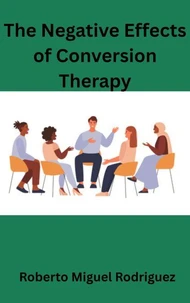Limitations of the American Judicial System offers a bold and timely examination of how prosecutorial power, as currently structured, undermines the principles of fairness and impartiality in American justice. This book explores the often-overlooked reality that a single city, county, state, or federal prosecutor-typically aligned with one political party-holds enormous discretionary authority to decide which cases to prosecute or dismiss.
In a polarized political climate, this structure invites bias, shields allies, and enables selective justice. The book proposes a groundbreaking reform: a system in which both the Republican and Democratic parties are granted equal prosecutorial authority within each jurisdiction. Through an analysis of historical examples, civil rights implications, and comparative international models, the text builds a compelling case that partisan imbalance in prosecution often skews justice.
It argues that allowing each major political party the legal power to initiate civil or criminal complaints could ensure that prosecutions are not stifled or manipulated for political convenience. Drawing from legal theory, political science, and real-world case studies, the book reveals how prosecutorial discretion is currently exercised with insufficient oversight or balance. It questions the traditional assumptions about neutrality in law enforcement and offers a vision for a justice system better aligned with democratic values.
Ultimately, the book contends that only by empowering both sides of the political spectrum equally can the justice system restore public trust and ensure that justice is not merely an extension of political power.
Limitations of the American Judicial System offers a bold and timely examination of how prosecutorial power, as currently structured, undermines the principles of fairness and impartiality in American justice. This book explores the often-overlooked reality that a single city, county, state, or federal prosecutor-typically aligned with one political party-holds enormous discretionary authority to decide which cases to prosecute or dismiss.
In a polarized political climate, this structure invites bias, shields allies, and enables selective justice. The book proposes a groundbreaking reform: a system in which both the Republican and Democratic parties are granted equal prosecutorial authority within each jurisdiction. Through an analysis of historical examples, civil rights implications, and comparative international models, the text builds a compelling case that partisan imbalance in prosecution often skews justice.
It argues that allowing each major political party the legal power to initiate civil or criminal complaints could ensure that prosecutions are not stifled or manipulated for political convenience. Drawing from legal theory, political science, and real-world case studies, the book reveals how prosecutorial discretion is currently exercised with insufficient oversight or balance. It questions the traditional assumptions about neutrality in law enforcement and offers a vision for a justice system better aligned with democratic values.
Ultimately, the book contends that only by empowering both sides of the political spectrum equally can the justice system restore public trust and ensure that justice is not merely an extension of political power.

 , qui est-ce ?
, qui est-ce ?